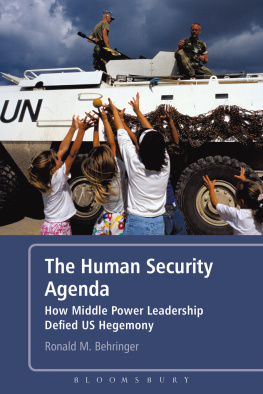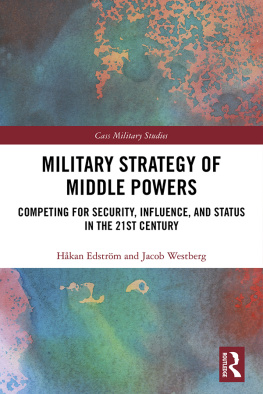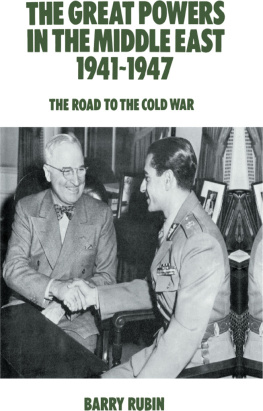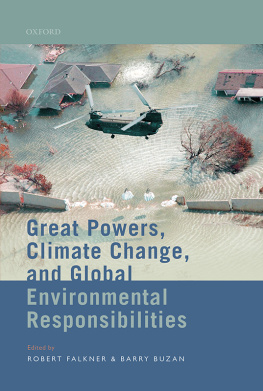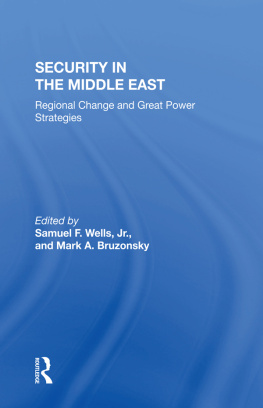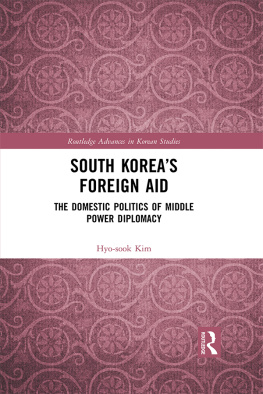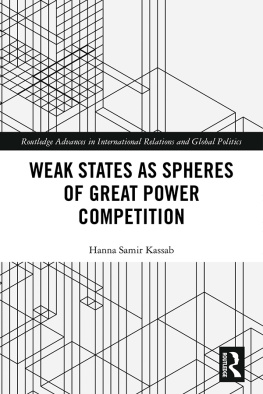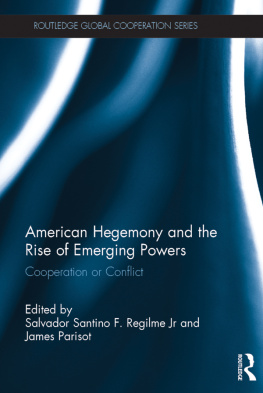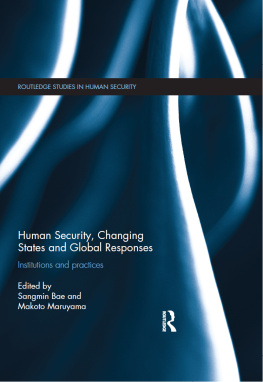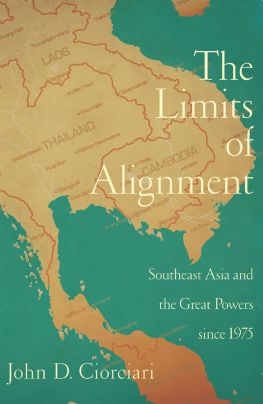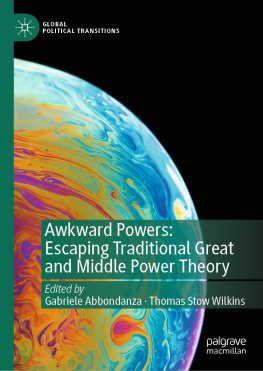I dedicate this book, with love, to my mother, Helen Mina.
The ideas which I have expressed in this book have evolved considerably over my academic career, and I am grateful to several individuals who have helped me along the way to develop them. I began exploring the topic of middle power leadership on human security during my doctoral studies in political science at the University of Florida. I would like to thank my mentor and chair of my doctoral dissertation supervisory committee, Dr. Ido Oren from the Department of Political Science, for his advice and guidance throughout the dissertation research and writing process, as well as his suggestions for the title of this book. I am also grateful to the members of my supervisory committeeDr. J. Samuel Barkin, Dr. M. Leann Brown, and Dr. Michael D. Martinez from the Department of Political Science, Dr. Terry L. McCoy from the Department of Political Science and the Department of Latin American Studies, and Dr. Paul J. Magnarella from the Department of Anthropology and the Levin College of Lawfor providing me with helpful comments on the drafts of my chapters.
My gratitude goes out to Dr. Martinez, Dr. Barkin, and Dr. Goran S. Hyden for providing me with funding during their terms as Graduate Coordinator of the department. While writing my dissertation, I was awarded a Gibson Dissertation Fellowship by the College of Liberal Arts and Sciences at UF, and I would like to thank the College, Mr. Robert Gibson, and Mrs. Jean Gibson for their generosity. Furthermore, I am highly appreciative of the assistance which I received on countless occasions from the staff of the Department of Political Science, particularly Mrs. Debbie Wallen and Mrs. Suzanne Lawless-Yanchisin.
I am indebted to several individuals who assisted me with my research. The Honorable Mr. Jacques Saadaformerly the Canadian Minister Responsible for Democratic Reform, the Leader of the Government in the House of Commons, and the Member of Parliament for the electoral riding of Brossard-La Prairie, and currently the President and Chief Executive Officer of the Quebec Aerospace Associationhelped me to arrange interviews in Ottawa. Mr. Tim Martin, the former Director of the Peacebuilding and Human Security Division of the Canadian Department of Foreign Affairs and International Trade (DFAIT), and the current Canadian Ambassador to Colombia, and Dr. Hlne Laverdire, the former Deputy Director of the Peacebuilding and Human Security Division of DFAIT, and current Member of Parliament for the riding of LaurierSainte-Marie, were both gracious in taking the time to be interviewed.
I also appreciate the insights of three individuals who participated in e-mail interviews: Mr. Hans Hkkerup, the former Danish Minister for Defense (19932001), and the former Special Representative of the Secretary-General for Kosovo and Head of the Nations Interim Administration Mission in Kosovo (UNMIK, 2001); Mrs. Mette Kjuel Nielsen, the former Head of the Department for Russia, CIS, OSCE, and the Balkans at the Danish Ministry of Foreign Affairs, former Danish Deputy Permanent Secretary of Defense (19982001), former Chair of the SHIRBRIG Steering Committee, and current Danish Ambassador to Serbia; and Dr. Peter Viggo Jakobsen, the former Head of the Department of Conflict and Security Studies at the Danish Institute for International Studies in Copenhagen, and current part-time lecturer at the University of Copenhagens Department of Political Science. I would also like to thank Dr. Knud Erik Jrgensen from the Department of Political Science and Government at the University of Aarhus for encouraging me to publish a synopsis of my dissertation research in Cooperation and Conflict in 2005 when he was editor of the journal.
While I was teaching at Concordia University in Montreal, Mrs. Marie-Claire Antoine, the Acquisitions Editor for Politics and International Relations at Continuum Publishing, inquired about my research on human security. So began the process of publishing this book, and I would like to thank Marie-Claire, her Editorial Assistant at Continuum, Ally Jane Grossan, and the editorial team at Deanta Global Publishing Services, led by Subitha Nair, for their tremendous assistance. I would also like to thank Dr. W. Andy Knight, the Chair of the Department of Political Science at the University of Alberta, for his constructive criticism of my book proposal, which inspired me to develop my ideas further. Moreover, I am grateful to Dr. Peter Stoett, the former Chair of the Department of Political Science at Concordia University and Mrs. Jeannie Krumel, the Department Administrator, for granting me extended library privileges to assist me with preparing my book manuscript after my contract with Concordia had ended.
Finally, I could not have achieved my goals in life without the love and support of my mother, Helen Mina. She has been there for me at every step of the way, offering encouragement whenever I needed it most. I dedicate this book to her as an expression of my eternal gratitude.

